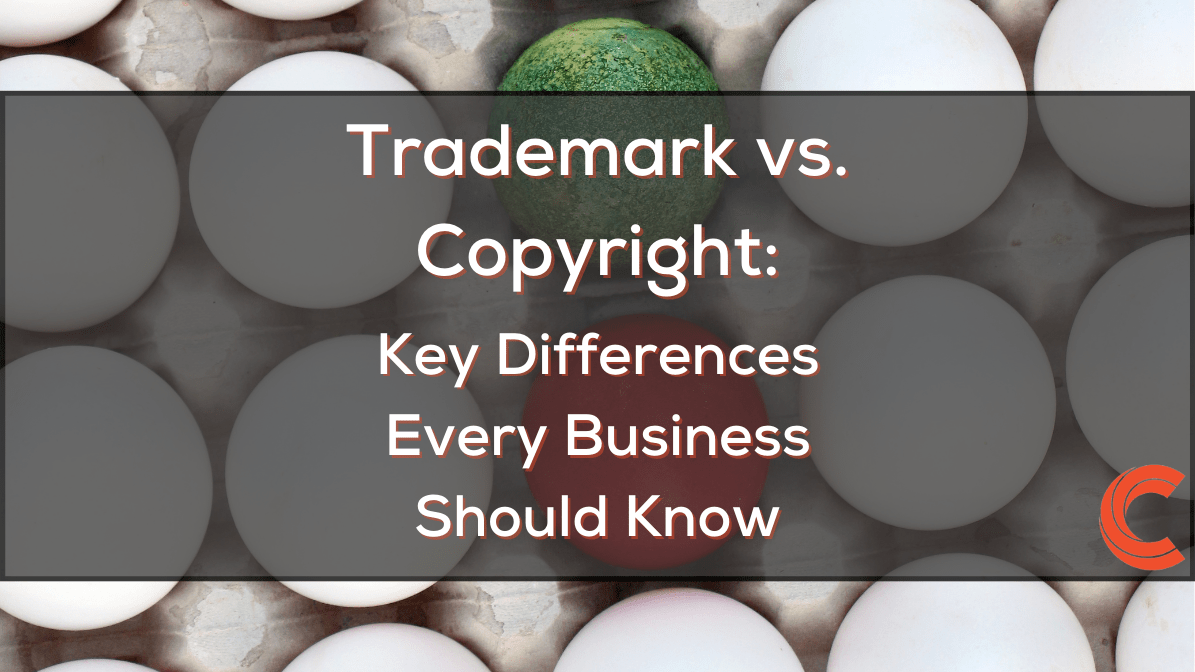In the intricate landscape of intellectual property, distinguishing between trademarks and copyrights is essential for businesses seeking to protect their creative and branding assets. This guide unravels the key differences between trademarks and copyrights, shedding light on how each safeguards distinct facets of intellectual property. By understanding these differences, businesses can make informed decisions that fortify their legal standing and preserve the integrity of their creative works and brand identity.
1. Defining Trademarks and Copyrights
Trademarks:
- Trademarks protect symbols, names, and slogans that identify and distinguish goods or services in the marketplace. They are crucial for establishing brand identity and consumer recognition.
Copyrights:
- Copyrights, on the other hand, safeguard original works of authorship, including literary, artistic, and musical creations. They grant creators exclusive rights to their works.
2. Protecting Brand Identity: Trademarks in Action
Distinctive Brand Elements:
- Trademarks shield distinctive elements like logos, brand names, and taglines, ensuring that consumers associate these elements uniquely with a particular business.
Preventing Consumer Confusion:
- The primary goal of trademarks is to prevent consumer confusion by ensuring that similar marks are not used in a way that could mislead or deceive consumers.
3. Safeguarding Creative Works: The Role of Copyrights
Original Creations:
- Copyrights protect a wide range of original creations, including literary works, artistic expressions, music compositions, and software code.
Exclusive Rights:
- Copyright holders enjoy exclusive rights to reproduce, distribute, display, and perform their works. This protection extends to both published and unpublished creations.
4. Duration of Protection
Trademarks:
- Trademarks can potentially last indefinitely, as long as they are actively used and maintained. Continuous use is key to preserving the distinctive nature of the mark.
Copyrights:
- Copyright protection has a finite duration. For works created after January 1, 1978, the copyright lasts for the life of the author plus 70 years.
5. Registration Process
Trademarks:
- Trademarks can be protected through common law rights, but businesses can enhance their protection by registering trademarks with the United States Patent and Trademark Office (USPTO).
Copyrights:
- Copyright protection is automatic upon the creation of an original work, but registration with the U.S. Copyright Office provides additional benefits, including the ability to sue for statutory damages.
6. Subject Matter of Protection
Trademarks:
- Trademarks focus on protecting elements that identify the source of goods or services, emphasizing brand distinctiveness in the marketplace.
Copyrights:
- Copyrights cover a broader range of creative works, including writings, visual arts, music, and software, emphasizing the protection of the creative expression itself.
7. Enforcement and Legal Remedies
Trademarks:
- Trademark owners can enforce their rights through legal actions, such as filing lawsuits for trademark infringement, seeking damages, and obtaining injunctive relief.
Copyrights:
- Copyright owners have similar legal remedies but may also be eligible for statutory damages and attorneys’ fees in certain cases, providing additional incentives for enforcement.
8. Overlapping Protection
Brand Elements with Artistic Value:
- There are instances where brand elements possess both trademark and copyright protection, especially when logos or other brand elements have significant artistic value.
Conclusion: Making Informed Intellectual Property Decisions
Understanding the distinctions between trademarks and copyrights empowers businesses to make informed decisions about protecting their creative works and brand identity. Whether safeguarding the distinctiveness of a brand or preserving the artistic integrity of creative works, businesses can navigate the intellectual property landscape with confidence. For personalized guidance on trademarks, copyrights, and intellectual property strategy, contact Carbon Law Group. Our legal professionals specialize in intellectual property law, providing tailored solutions to ensure your business assets are legally fortified and creatively preserved. Embrace the realm of intellectual property confidently—where trademarks and copyrights meet the essence of innovation.





